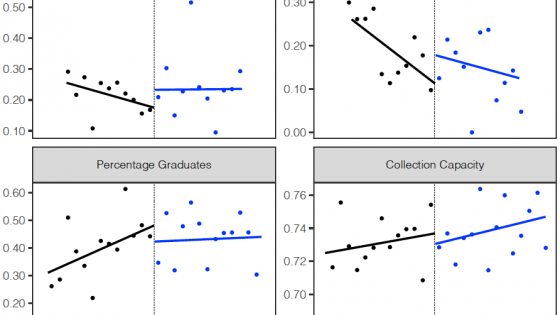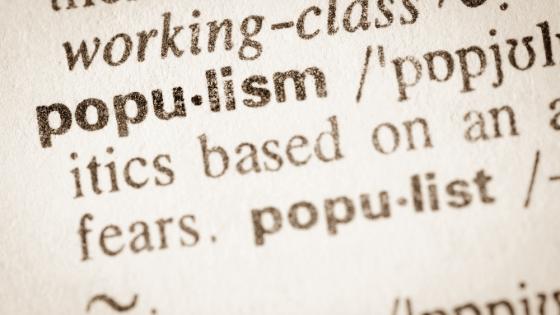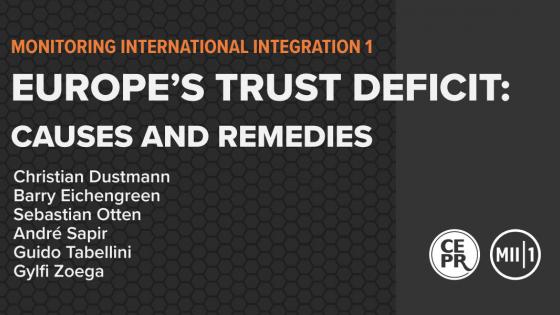This column is a lead commentary in the VoxEU debate on "Populism"
“You're fired” is not just the famous phrase used by Donald Trump to eliminate ‘wantrepreneurs’ from the reality show, The Apprentice. It was also the political manifesto of Trump's administrative politics.
Populism has become a dominant feature of contemporary democracy and an increasingly studied topic in economics and political science. While there is a burgeoning literature on the causes of populism, less is known about its consequences. How do populist politicians govern when they get to power? Recent work has started to answer this question empirically, confirming the detrimental effects of populism for the economy. Funke et al. (2020), for instance, assemble a new dataset on populist leaders spanning over 120 years and find large long-term economic costs of populism, with GDP per capita being more than 10% below a plausible non-populist counterfactual.
But why is populism bad for the economy? One potential explanation is populists’ reluctance to use expertise in policymaking.
Populism, Levy et al. (2021) claim, can be interpreted as a simplistic way of doing politics (see also Morelli et al. 2021). This is because populist politicians strategically hold a simplistic view of policy problems and solutions and propose policies that are unable to match the complexity of the world. In doing so, populists seek to secure the support of loyal bureaucrats who do not hinder the populist agenda. Expertise is, in fact, at odds with the simplistic policies sponsored by populist politicians, who might see expert bureaucrats more as elite saboteurs than trusted subordinates. Populists’ preference for loyalty over expertise suggests that populist governments will replace experts with loyal bureaucrats in order to ensure the implementation of their simplistic policies (Sasso and Morelli 2020). There is ample anecdotal evidence about populist politicians purging the bureaucracy in order to attain desired policy goals and ensure control over administrative bodies.
While president, Trump fired and forced several top bureaucrats to resign because of their lack of loyalty. Chris Krebs, head of the Cybersecurity and Infrastructure Security Agency, Defence Secretary Mark Esper, and James Comey (FBI director) – to name but a few – all suffered the same hostile and abrupt fate, often learning they had been fired via a tweet. The departure of experts when populists are in government is likely to have detrimental consequences for government and effectiveness, because simplistic politics in a complex world necessarily leads to welfare losses.
In our new paper (Bellodi et al. 2021), we provide empirical evidence that these effects are real and significant. We study narrow electoral victories of populists in the Italian mayoral elections and find that electing a populist mayor leads to higher turnover among top bureaucrats and to a lower quality of bureaucrats. We also find a higher probability of non-experts replacing qualified civil servants, with detrimental consequences for government performance.
We use novel and rich administrative data from several ministerial sources to assemble a dataset on the bureaucratic composition of about 8,000 municipal governments over a 20-year period (1998-2018). We build four main variables to capture (1) turnover among bureaucrats, (2) the percentage of bureaucrats with a university degree, (3) the probability that hired bureaucrats are less educated than bureaucrats who leave the administration, and (4) the collection capacity of the government (i.e. assessed revenues over actual revenues collected).
The main empirical challenge is to make credible comparisons between populist and non-populist governments. We know from previous literature that municipalities where populists are more successful can be systematically different from municipalities where populists do not succeed. For instance, there is now solid evidence that the demand for populism is higher in those communities and groups more exposed to economic insecurity (Guiso et al. 2020). Populism does not emerge at random, and municipalities with a populist government might differ from municipalities without a populist government in terms of many other unobservable characteristics that could at the same time affect our outcomes of interest.
We address this source of unobserved heterogeneity with a regression discontinuity design. We use a set of close-election regression discontinuity designs to compare populist mayors who barely won and those who barely lost the municipal elections. The intuition is that when we look at municipal elections where a populist candidate barely won or lost, we can assume that victory occurs by chance, and therefore municipalities in which a populist candidate barely wins are (in expectation) identical to those where a populist candidate barely lost.
Figure 1 plots the averages of the four outcomes for those municipalities in which the populist candidate barely lost (dark dots) and those where the populist candidate barely won (blue dots). We find that, under a populist government, bureaucratic turnover increases by 9%, the probability of non-expert bureaucrats replacing experts increases by about 11%, the percentage of bureaucrats with a university degree drops by 7.6%, and the collection capacity of the government by 1.1%. The estimated effects are distinguishable from zero at conventional significance thresholds.
Figure 1 Outcomes of municipalities where populist candidates won or lost by small margins
Note: Binned averages of the four outcome variables in close elections (i.e., margin of victory between -10% and +10%). The solid line is a local liner fit. Scatter points are averaged over 0.8% margin of victory.
We find support for the populism-expertise-performance theory, identifying one of possibly many ways in which populism can undermine the economy. These results are doubly worrying if matched against recent work on under-performing bureaucracies and legislative overproduction. Gratton et al. (2021), for instance, show that politicians facing an inefficient bureaucracy have an incentive to pass more legislation as a cheap signal of effort to their constituents. These incentives trigger a vicious cycle whereby more laws further hinder bureaucratic efficiency, which in turns create more incentives for politicians to increase their legislative activity, ultimately engulfing the entire governmental machinery. Consistent with this mechanism, we find that government bodies controlled by populist mayors pass more resolutions and planning instruments. We believe this dynamic consequence of populism, coupled with the decrease in bureaucratic quality of government performance, can further deteriorate the long-term functioning of the state.
These findings have important implications for understanding the relationship between politicians and bureaucrats and the effect of this relationship on the quality of democracy and the economy (Ash et al. 2020, Foarta and Morelli 2021, Morelli and Vannoni 2021). When politicians can rely on an efficient bureaucracy with a high implementation capacity, politicians have an incentive to pass good laws and reforms. When the bureaucracy does not work properly and when it is devoid of expertise, the politicians will use excessive legislation to maximise their short-term electoral benefits, with negative consequences for the economy.
References
Ash, E, M Morelli, and M Vannoni (2020), "More Laws, More Growth? Evidence from U.S. States", Working Paper.
Bellodi, L, M Morelli, and M Vannoni (2021), "The Costs of Populism for the Bureaucracy and Government Performance: Evidence from Italian Municipalities", CEPR Discussion Paper 15929.
Foarta, D, and M Morelli (2021), "Complexity and the Reform Process", Working Paper.
Funke, M, M Schularick, and C Trebesch (2020), "Populist Leaders and the Economy", ECONtribute Discussion Paper.
Gratton, G, L Guiso, C Michelacci, and M Morelli (2021), "From Weber to Kafka: Political Activism and the Emergence of an Inefficient Bureaucracy", Working paper.
Guiso, L, H Herrera, M Morelli, and T Sonno (2020), "Economic Insecurity and the Demand of Populism in Europe", Working Paper.
Levy, G, R Razin, and A Young (2021), "Misspecified Politics and the Recurrence of Populism", Working paper.
Morelli, M, A Nicolò, and P Roberti (2021), "A Commitment Theory of Populism", Working paper.
Morelli, M, and M Vannoni (2021), “Regulation and Economic Growth: A 'contingent’ Relationship”, VoxEU.org, 29 March.
Sasso, G, and M Morelli (2020), “Bureaucrats under Populism” CEPR Discussion Paper 14499.







